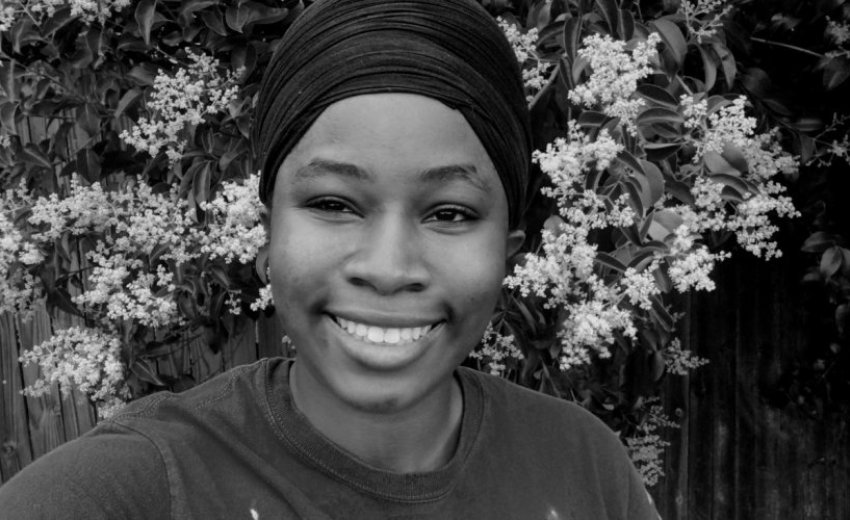The global rallies in support of the Black Lives Matter movement have drawn attention to police brutality, but they have also sparked a broader discussion about anti-black bias in society. Even inside the Sikh community, anti-black prejudice exists. A few years ago, Jasmine Morris aka Gurpreet Kaur, a Texas woman who began practicing Sikhism, shared her experience on the subject,
"I think the first thing brown Sikhs need to do is admit that there is anti-blackness within the Sikh community,"
Her statement applies not only to Sikhs but to all desi communities.
Anti-blackness from Punjabis
Gurpreet shares that every single black person she knew who has been a member of the Sikh community has encountered anti-blackness from their brown siblings. More specifically, there are typically three types of racism. First is racism due to hate. The second type of racism exists due to ignorance. A lot of Punjabis in America, especially the first and second generation, come from India and have little to no interaction with black people. They might say offensive things to black Sikhs. While some might comment, ‘I’ve been outside today and look! I’m almost as dark as you!’, others might curiously ask ‘ Why is your hair like that? Can you change it?’
Most people do not know that these statements are offensive. It is mostly because they haven't been told so yet. However, ignorance cannot be eliminated overnight. Gurpreet says that she has hope from young people in the Sikh community to explain and make their family members understand the raging issue of racism and how their statements can be hurtful and offensive at times.
Finally, the third type of racism is due to supremacy or tokenism. Gurpreet says that this is the one that she has experienced the most. Some members of the Sikh community demand that non-brown individuals abandon their prior culture and adopt the ‘Punjabi’ culture when they join the group. I was even told by a kid once that I was no longer black but Punjabi. She said that even though she appreciated Indian cuisine and had accepted it, she still doubts that the brown population would be as receptive to her southern cuisine. In any case, she believes that both black and brown people may agree that forcing cultural integration is unacceptable.
Gurpreet shares that a lot of blacks feel that sometimes Sikhs don’t care about the black Sikhs but rather use them as a tool for their benefit. They put the newly initiated black Sikhs on a pedestal and try to preach that they are not racist. They are concerned with hiding the reality that, while Sikhi is welcoming to people of various backgrounds, the Sikh community as a whole is not always. However, there is now change taking place. It is slow, but for the better.
Punjabis, Sikhs, and Browns need to rethink their prejudice
Gurpreet shares that the first thing that brown Sikhs need to do is to admit that there are anti-black sentiments within the Sikh community. She says that she has noticed a trend when people hide behind their scriptures to deny reality. Even though the scriptures preach equality, it is not true that everyone follows it. Also, there are times when people believe that they do not discriminate but their actions state otherwise. So, the first step is to acknowledge that racism exists.
Listen, change and speak up
After this, the next step should be to change and speak up. Sharing her experiences of bias as a black Sikh, Gurpreet says that she has been denied parsad at a gurudwara. So, if someone says that they have been treated a particular way at the gurudwara, it is important to accept it. Do not dismiss it only because it never happened in front of you or with you.
Making a change is crucial. If you are in a position of power, then take a step to change things. For instance, Gurpreet says that one of her black peers suggested that gurudwaras should open their doors to all the members of the surrounding community and interact with them. While some gurudwaras have already initiated this, there is a long way to go.
Gurpreet believes that if the Sikh community wishes to demonstrate inclusiveness then they should start welcoming others to the services and show them around the gurudwara. They should sit down and share a meal or langar with them. By doing so, the Sikh community can extend its arms to individuals of various races or beliefs and become truly universal.
Lastly, speaking up against racist remarks and behavior is important. Sikhism is about equality and humanity, and it should be propagated in the actions of the Sikh community.
*Based on an article by Sunny Handal, published by Barfi Culture on 21st June 2020
